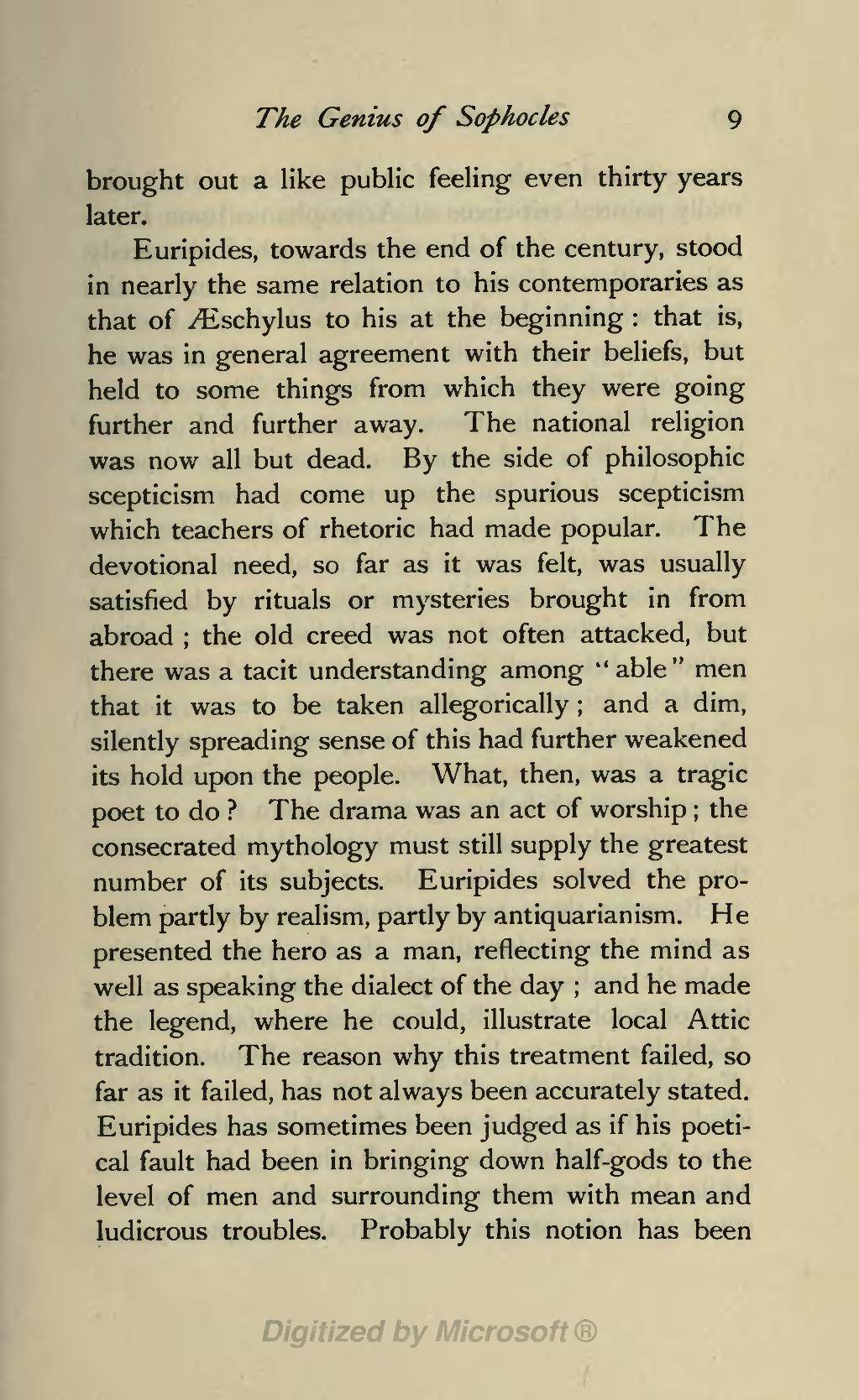brought out a like public feeling even thirty years later.
Euripides, towards the end of the century, stood in nearly the same relation to his contemporaries as that of Æschylus to his at the beginning: that is, he was in general agreement with their beliefs, but held to some things from which they were going further and further away. The national religion was now all but dead. By the side of philosophic scepticism had come up the spurious scepticism which teachers of rhetoric had made popular. The devotional need, so far as it was felt, was usually satisfied by rituals or mysteries brought in from abroad; the old creed was not often attacked, but there was a tacit understanding among "able" men that it was to be taken allegorically; and a dim, silently spreading sense of this had further weakened its hold upon the people. What, then, was a tragic poet to do? The drama was an act of worship; the consecrated mythology must still supply the greatest number of its subjects. Euripides solved the problem partly by realism, partly by antiquarianism. He presented the hero as a man, reflecting the mind as well as speaking the dialect of the day; and he made the legend, where he could, illustrate local Attic tradition. The reason why this treatment failed, so far as it failed, has not always been accurately stated. Euripides has sometimes been judged as if his poetical fault had been in bringing down half-gods to the level of men and surrounding them with mean and ludicrous troubles. Probably this notion has been
